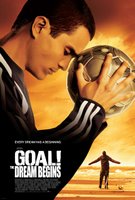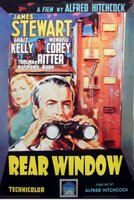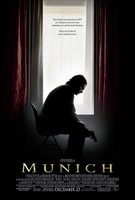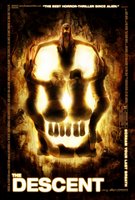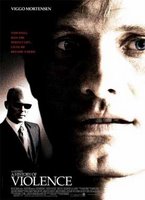Jarhead
 Hoo-ra. The US Army and Marine corps have been committed to celluloid many times before, most notably in Stanley Kubrick's Full Metal Jacket, and also the ubiquitous Apocalypse Now and The Deer Hunter. Even Oliver Stone and Charlie Sheen combined to put together a memorable piece of war-inspired cinema with Platoon. Cinema has always loved the war movie, and Kubrick possibly has two of the best in the genre, with Paths of Glory, often overlooked but also a classic in any terms, and with messages that are still relevant in contemporary times. People may think Mark Hamill never made anything decent outside of his lightsaber-swinging turns as Luke Skywalker, but Sam Fuller's The Big Red One is an excellent, and highly unusual war movie. Even Saving Private Ryan can be considered a modern classic, and is arguably Steven Spielberg's finest hour.
Hoo-ra. The US Army and Marine corps have been committed to celluloid many times before, most notably in Stanley Kubrick's Full Metal Jacket, and also the ubiquitous Apocalypse Now and The Deer Hunter. Even Oliver Stone and Charlie Sheen combined to put together a memorable piece of war-inspired cinema with Platoon. Cinema has always loved the war movie, and Kubrick possibly has two of the best in the genre, with Paths of Glory, often overlooked but also a classic in any terms, and with messages that are still relevant in contemporary times. People may think Mark Hamill never made anything decent outside of his lightsaber-swinging turns as Luke Skywalker, but Sam Fuller's The Big Red One is an excellent, and highly unusual war movie. Even Saving Private Ryan can be considered a modern classic, and is arguably Steven Spielberg's finest hour.
Each of those movies had it's own take on the chaos and futility of war, as well as the experiences of the individual soldiers who find themselves coping with reality in a warzone. All of these movies portray a side of being a soldier that is idiosyncratic to each, and in addition, they tend to age well. They also have their own proprietary iconic cinematic images: the troop of marines singing the mickey mouse club theme at the end of Full Metal Jacket, the russian roulette scenes in The Deer Hunter, Martin Sheen punching the mirror in Apocalypse Now, Willem Dafoe on his knees in his death throes in Platoon... war may be hell, but it's fodder for great movie moments...
For film-makers too, it's great for box office and a ready made context for boiler-plate characters to emerge without too much exposition required: the drill sergeant, the questioning new recruit, the nervous newbie, the unthinking bloodthirsty guy, the reluctant authority figure... Throw in some big stars in uniforms, the odd large-scale battle sequence, and a few boot camp conversations about why we're here really, and the audience can't seem to get enough.
Even in this context, I can safely say that Jarhead is a welcome addition to the genre. However it is probably more readily compared to the excellent Three Kings than any of the war genre movies mentioned above. Indeed, the movie's director Sam Mendes (of American Beauty fame) appears to display a irreverent attitude towards the classic vietnam movies of the 80's. There is an enteraining sequence in Jarhead's opening act where the marines, still in training in the U.S., sit down to watch 'Apocalypse Now', cheering every explosion and singing in unison to 'the March of the Valkyries' as vietnamese villages are pulverised on screen. By the time the third act rolls around and the marines have been stationed in the Kuwaiti desert for months however, the marines' attitude is very different. Apocalypse Now is indirectly referenced once again as a chopper flies overhead playing 'Break on Through' by The Doors. (a sideswipe at Oliver Stone perhaps!?)
Jarhead tackles an interesting twist on the theme of futility, but not only confined to the futility of war. The objective of the U.S. military presence in Kuwait was very different to that of the Vietnam manoeuvres, but had an air of futility all its own. In addition, the marines of Jarhead's corps are trained snipers in a desert war. In a scenario where air strikes win the battles, these guys can't help but feel a little useless, even relative to the other Jarheads stationed there.
The film focuses on the boredom of being a soldier in the desert, and the routine of hydration, boredom, and dehydration is nicely evoked, with Jake Gyllenhall capable enough as Swofford, the main protagonist. His principal comrade, Peter Sarsgaard, is quietly effective, and Jamie Foxx has a nice turn as the staff sergeant, more soft-spoken than R. Lee Ermey's drill sergeant in Full Metal Jacket perhaps, but still believable as the leader of the crew.
Jarhead is visually spectacular in moments, and the third act in particular is set against desert backdrops that are particularly unreal, albeit familiar from news images of the time. The script is adapted from Swofford's book, detailing his real-life experiences in Kuwait, and it has a reality to it that gives Jarhead its credibility.
So, overall, Jarhead is solid stuff, intelligent and entertaining, but it's in a genre that is well-defined, with some very stiff competition. With a better lead actor Jarhead might have pushed through to join those cinematic legends I mentioned above, but even with that in mind, there's still a lot to love about this one. If you haven't seen it, and are stuck for something to rent, it's one you should certainly give the time of day.
Verdict: War, what's it good for? Solid movies like this! Gyllenhall's good and Sam Mendes is a real talent.
Rating: 6/10


